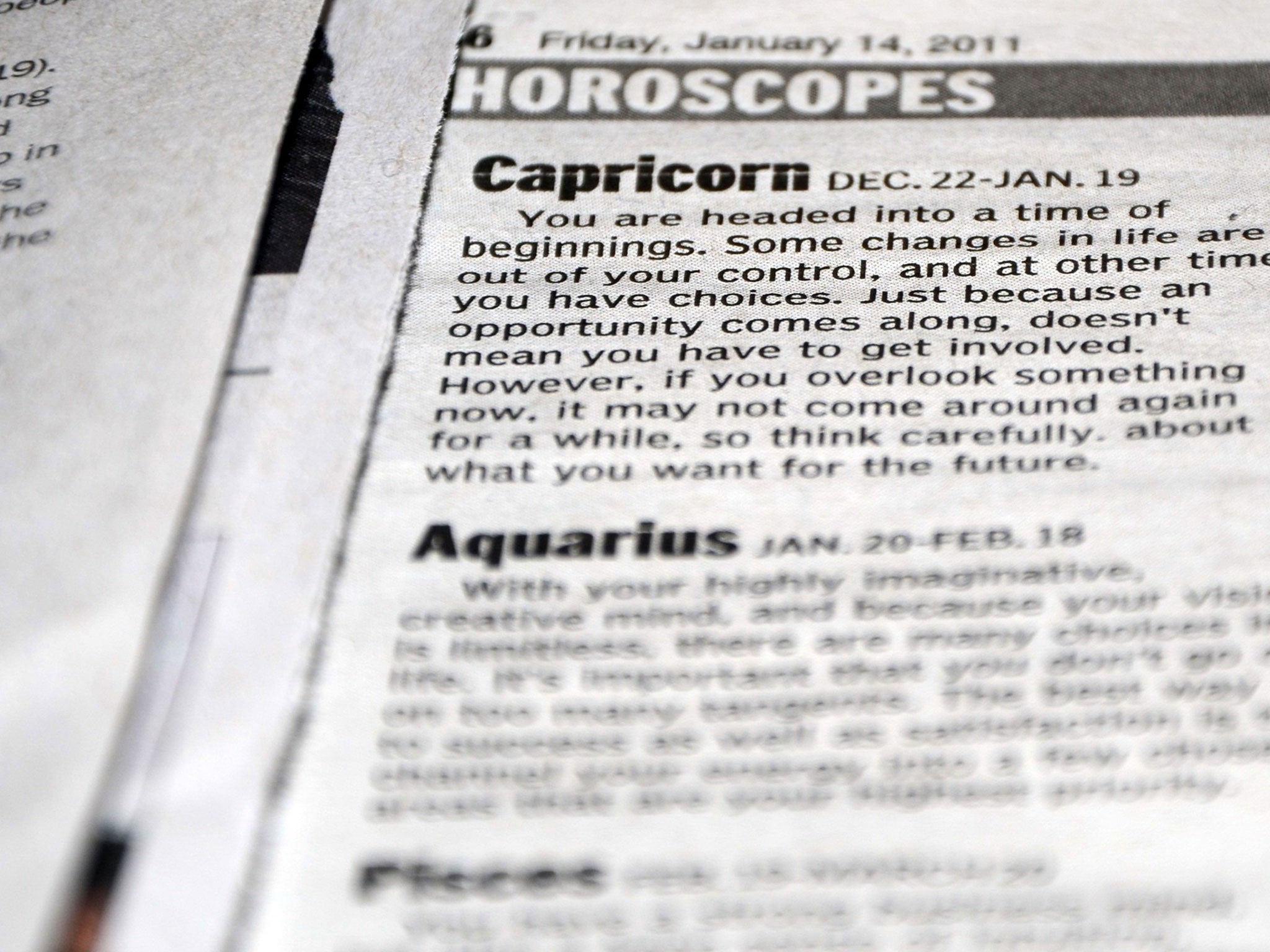Horoscopes 'bad for you' say scientists, warning obsession with starsigns can cause indulgent and impulsive behaviour
Scientists warn people who checked their horoscope daily were more likely to behave impulsively

Your support helps us to tell the story
From reproductive rights to climate change to Big Tech, The Independent is on the ground when the story is developing. Whether it's investigating the financials of Elon Musk's pro-Trump PAC or producing our latest documentary, 'The A Word', which shines a light on the American women fighting for reproductive rights, we know how important it is to parse out the facts from the messaging.
At such a critical moment in US history, we need reporters on the ground. Your donation allows us to keep sending journalists to speak to both sides of the story.
The Independent is trusted by Americans across the entire political spectrum. And unlike many other quality news outlets, we choose not to lock Americans out of our reporting and analysis with paywalls. We believe quality journalism should be available to everyone, paid for by those who can afford it.
Your support makes all the difference.While horoscopes are ridiculed by some, following the stars is an obsession for others. However new research suggests studying your horoscope regularly may actually be bad for you.
Research published in the Journal of Consumer Research has found people who checked their horoscope daily were more likely to behave impulsively or exhibit indulgent behaviour if their zodiac was negative.
In one study, scientists at the University of South Carolina and Johns Hopkins University in Baltimore, Maryland asked participants to choose between going to a party or cleaning their home after reading a favourable or unfavourable star sign.
Going to a party was considered an indulgent decision and cleaning at home a virtuous one. Participants who had been given a negative star sign were more likely to choose attending a party over a virtuous decision.
The authors were surprised by the results and had expected participants who were handed an unfavourable horoscope to choose the virtuous activity in a bid to prevent the outcome in their horoscope.
“Conventional wisdom might suggest that for people who believe they can change their fate, an unfavourable horoscope should result in an attempt to improve their fate,” the authors of study, Hyeongmin Kim of Johns Hopkins University, and Katina Kulow and Thomas Kramer of the University of South Carolina, said.
The authors note approximately one third of people in America "strongly believe" in the fateful predictions within horoscopes.
The authors concluded: "Specifically, our studies reveal that an unfavorable fateful prediction subsequently increases the likelihood of choosing indulgent over virtuous options only for consumers who believed their fate is malleable.
"Further, those who believe in malleable fate do not show indulgent behaviour after receiving an unfavourable fateful prediction covering a longer time period or after receiving a favorable fateful prediction.
“Our results showed that reading an unfavourable horoscope actually has the opposite effect on a person.”
Join our commenting forum
Join thought-provoking conversations, follow other Independent readers and see their replies
Comments